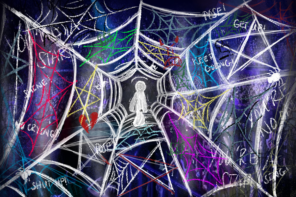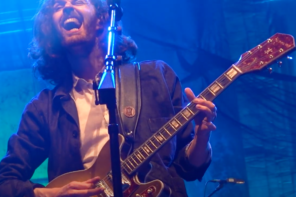Trends are cyclical. In many ways, a trend can never be truly original, as current ones often take influence from those of the past. We see this occur in fashion, television, and even music, which has evolved significantly over the past 50 years. The 70s were characterized by disco, soul, and jazz, the 80s popularized EDM, and the 90s were a decade of rock. The 2000s introduced a new wave of hip hop, and today, there are countless different genres that make up the music industry, such as country, pop, and rap. Although trends have changed considerably throughout the past 50 years, many current artists look to past great musicians for inspiration in order to establish a unique sound that combines contemporary and old-school styles of music. Songwriting is an art, and musical artists are no different from modern-day painters who draw inspiration from renowned works by Monet and Picasso.
A trend can never be truly original, as current ones often take influence from those of the past.
The Weeknd is a Canadian songwriter who first gained popularity for his contemporary R&B music. While his songs are usually dark, somber, and emotional, they also contain an element of pop, which makes them easy to sing along to. Songs such as “Can’t Feel My Face” and “Earned It” quickly gained popularity, as they contain low beats and slow tempos that are euphonious to the ear. Other songs, such as those present in the album Trilogy, are extremely dark and depict themes of substance abuse, depression, and desperation. Overall, many of The Weeknd’s earlier songs describe a lost, emotionless character who seeks refuge through unhealthy habits, which can be interpreted as a reflection of his inner self.
In recent years, The Weeknd has made a notable effort to steer away from this dark style of music, and into a lighter one that better incorporates the 80s influences that have impacted him throughout his career. While the vast majority of his music has been inspired by artists and genres of the past, his newest album, Dawn FM, contains a more evident use of 80s music trends, and it largely differs from his earlier musical works.
Dawn FM is the sequel to After Hours, which is the album that first began The Weeknd’s transition to a more definitive 80s-style sound. After Hours depicts a story of a character who loses himself in heartbreak and sadness, and in the album’s final track, “Until I Bleed Out,” many believe that this character’s suffering is ended through death. In an interview with Billboard in November 2021, The Weeknd describes Dawn FM as being in a state of purgatory and explains that it was meant to act as a continuation of the story depicted in After Hours by documenting the character’s transition to the afterlife. The album additionally features Jim Carrey as an 80s radio station host who narrates this character’s journey into the light.
Dawn FM is a combination of The Weeknd’s own personal dark style of lyricism with the catchy, feel-good beats that defined popular music in the 80s.
Dawn FM largely represents a shift from darkness to light, as depicted by the theme of purgatory. While many of the songs on the album continue to revolve around ideas of heartbreak and what it means to exist in the world, they are considerably different from The Weeknd’s earlier music, as they draw clear inspiration from 80s music trends, such as EDM. Dawn FM is a combination of The Weeknd’s own personal dark style of lyricism with the catchy, feel-good beats that defined popular music in the 80s, which has contributed to the creation of a genre in this album that is extremely unique. This attention to detail shows how old trends can be repurposed and combined with modern ones in order to create new forms of art.
In the song “Sacrifice,” for example, one of the most noticeable features is the soundtrack, which is very upbeat and contains elements of pop and disco by utilizing a prominent drum beat and guitar synth. This soundtrack embodies an evident 80s music style, and The Weeknd’s vocals in this song are comparable to those of Michael Jackson. When listening to the “Sacrifice” soundtrack, the song appears extremely light and cheerful, however, the lyrics are written in a way that largely conform to The Weeknd’s old, darker style of music. His method of combining his own personal approach to lyricism with inspired beats that revive the 80s is very unique, and it creates a sense of nostalgia which helps to widen his target audience to older generations, as well as younger ones.
It is not easy to modernize dated genres and combine them with contemporary trends of the present-day music industry in a way that is appealing to a wide variety of listeners. However, The Weeknd has managed to create and perfect his own defined sound, which is well-known to music lovers across the globe.








